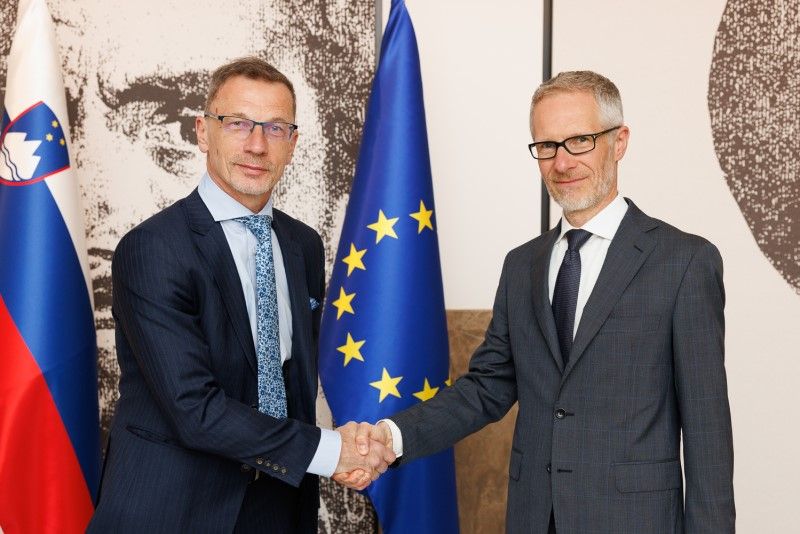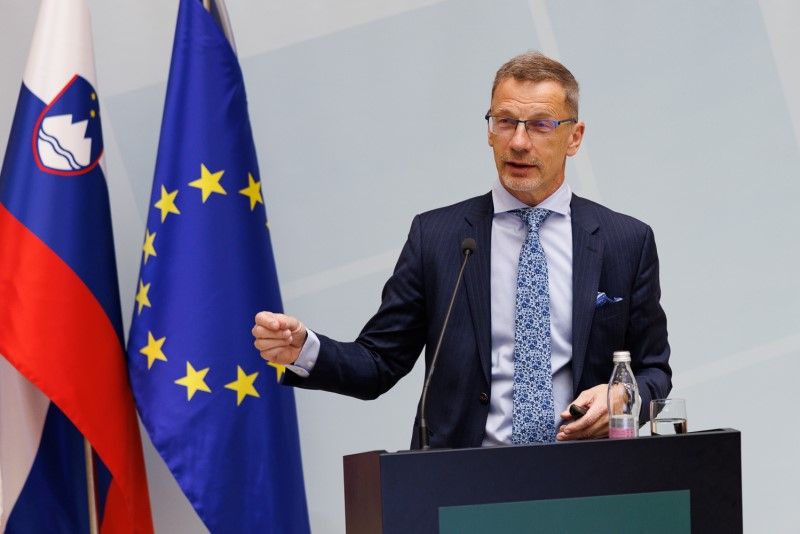Croatia joined the euro on 1 January this year, thus becoming the 20th and newest member of the euro area. This is the first expansion since 2015, when Lithuania joined the euro. Before joining the euro, each country is required to meet certain economic criteria alongside ensuring the institutional independence of the central bank: a high level of price stability, healthy public finances, a stable exchange rate, and convergence of long-term interest rates. Croatia joined the euro in challenging circumstances, influenced by the Covid-19 crisis and the Russian military aggression against Ukraine, and the resulting high inflation.
Banka Slovenije hosted Boris Vujčić, Governor of the Croatian National Bank, who talked about the process of preparing Croatia for adopting the single European currency. Among other topics, he touched upon:
- the euro adoption process: then and now,
- the challenges in the context of high inflation,
- the benefits of adopting the euro for a small EU Member State.
The event started with an opening speech by the Governor of Banka Slovenije, Boštjan Vasle. This was followed by a lecture given by Boris Vujčić, Governor of the Croatian National Bank (Hrvatska narodna banka).
Opening speech by Boštjan Vasle, Governor of Banka Slovenije
Presentation by Boris Vujčić, Governor of the Croatian National Bank
Recording of the lecture (YouTube)


